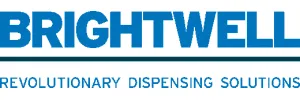Our Blog
Our treasure trove of resources, tips and tricks

Posted on 28 May 2012 by Ceris Burns
Creating a sustainable, international Olympic legacy
Published in Urban Sanitization, India’s premier magazine for cleaner cities – April – June 2012
Ceris Burns looks at how all countries can improve their sustainable practices and sanitation infrastructures by learning from Olympic developments
For all countries and, historically, civilisations, the Olympic Games represent the height of individual and team success. Efforts are increasingly made to mirror ‘on field’ sporting success with ‘off field’ glory of having hosted a successful games and a lasting legacy of change for the environment and communities.
An important part of planning for the London 2012 Olympic and Paralympic Games is learning from those involved in previous games and other major international events. All cities and countries can draw lessons in managing their own sanitation infrastructures by drawing on developments in the context of Olympic preparations.
Sustainability is a key part of the planning of the Olympics to be hosted in London this year. The Olympic Delivery Authority is the statutory planning authority for the Olympic Park area. In addition to delivering the venues and infrastructure by commissioning work through various organisations, it has a sustainable development strategy focused on five key themes:
1. Climate change – minimising carbon emissions and ensuring Olympic facilities are able to cope with the impacts of climate change.
2. Waste – Minimising waste at every stage of the project, ensuring no waste from demolition or construction is sent to landfill during Games-times, but instead is recycled or reused.
3. Biodiversity – minimising the impact of the Games on wildlife and their habitats in and around Olympic venues.
4. Inclusion – Promoting access for all and celebrating the diversity of London and the UK and creating new employment and training opportunities.
5. Healthy living – Inspiring people to take up sport and develop active, healthy lifestyles.
External air quality – monitoring and control of dust levels
Steps have been taken to manage and control dust during construction in consultation with the Environment Agency, a UK government body which aims to protect and improve the environment, and to promote sustainable development.
Dust levels are measured and local authorities are informed if there are increased levels. If dust levels are higher than agreed levels, action can be taken in consultation with the local boroughs to reduce the impact.
Methods to control dust include applying an environmentally safe ‘binder’ to piles of soil to minimise the amount of movement, and applying water to materials during demolition. Site roads have been hard surfaced and dampened down with water, and vegetation has been added in areas near the Olympic park to help reduce dust blown by the wind. Road sweepers and wheel washers used on site, plus strict speed limits enforced around construction sites.
Internal air quality
Consideration of internal air quality has been an important aspect of the design processes of buildings. Air intakes are situated away from areas of pollution and natural ventilation maximised as much as possible. In relation to construction materials, the aim is to minimise materials that could have a negative impact on air quality. This includes Volatile Organic Compounds (VOCs) or materials containing formaldehyde. On-going maintenance and cleaning of facilities to prevent build-up of dust, mould or other contaminates is also essential.
Water and sanitation
Sustainable Drainage Systems (SuDs) principles are being applied through the Olympic Park design. Surface water and foul drainage systems are separated to both minimise the risk of water pollution associated with combined sewage networks and reduce flows to sewage treatment works.
Thames Water, one of many water companies in the UK, has won a contract to provide all water utility and waste water services at London 2012 venues, ensuring clean, reliable tap water and sanitation to the Games. A black water recycling plant on the edge of the Olympic Park will conserve water, treated to drinking standards and produce water from Londoners’ sewage for non-drinking purposes including the heating and cooling of the Olympic Park’s Energy Centre.
The facility will also provide enough non-drinkable water to flush more than 80,000 toilets each day. As well as being used for toilet flushing in the main buildings and venues, it will also be used to irrigate the parklands and fields of the venues.
Waste management
The UK Government wants to move towards a zero waste economy, where we work to prevent waste, then reuse, recycle and recover the waste that cannot be prevented – and throw away only as a last resort.
A hierarchy sets out, in order of priority, the options for managing waste that should be considered prior to disposal. In order of priority, these are:
- preventing waste
- preparation for reuse
- recycling
- other recovery such as energy recovery
- last of all disposal, for example by landfill
One key thing that has reduced the level of general waste across many different countries is the proper sorting of material. Sorting at source makes it easier to separate out recyclable materials such as glass, plastics and cardboard from general waste. There are now a number of recycling systems which make segregation of waste easy to manage.
A waste management contractor was appointed to sort, compact and transport waste by barge from the Olympic site, 90 per cent of which will be reused or recycled.
Noise
The Olympic Park soundscape design aims to reduce transport and industrial noise through screening and absorption but also aims to reduce the negative impact of noise with positive associations such as flora and fauna and active water/waterside displays.
Community inclusion
An on-going programme of communication and consultation with communities has been undertaken during the construction process. Communication has included exhibitions, events and articles in local papers and magazines. The london2012.com website is regularly updated with the latest activity and there is a telephone hotline enabling people to access basic communication and to register any concerns they have.
The Olympic Park is primarily situated on areas home to some of the most deprived communities in the country. Thousands of new homes are being built neighbouring the Olympic Park which will house Olympic and Paralympic athletes during the Games. These will be converted post Games and will be supported by new schools, new utilities infrastructure, roads, transport and community and health facilities in the area. Significant employment and business opportunities have also arisen as a result of the development with jobs being created in the construction of the Olympic Park.
Health and well being
An important part of planning for the London 2012 Olympic and Paralympic Games is learning from those involved in previous games. Part of this planning includes working with the World Health Organisation (WHO) to plan infectious disease surveillance processes.
Health and safety standards during the design and construction activity are key to ensure the health and well-being of those constructing the Park and venues. Hazards, including hazardous materials are identified and reviewed throughout the design process so that they can be eliminated, minimised or managed prior to construction.
The creation of new sporting facilities is also intended to provide long lasting benefits for the physical and mental health and well-being of local communities.
Hand hygiene on the Olympic agenda
A package of health advice for Olympians comes from their medical teams. Anything from cutlery to door handles could be carrying germs in the densely populated Olympic village and athletes are advised to undertake regular hand washing and use of special protective hand foam as an extra barrier. The British Cleaning Council is also urging the public to take regular hand washing seriously to prevent spreading bugs.
Summary
In 2012, the world’s media will focus on the UK and it is hoped that the Games will provide a challenging step change for sustainable development both in the UK and worldwide
Categories
- Branding
- Crisis Management
- Digital PR
- Environmental PR
- General News
- Guest Blogs
- International Insight
- Our Blog
- SEO Updates
- Social Media
- Uncategorised
Experts in Public Relations Services & Communications Management
Our ServicesGenuine industry specialists in cleaning and hygiene, environmental and recycling, and facilities management
Our Sectors












